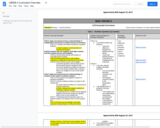
6th Grade Regular Math: Course Scope & Sequence.
- Subject:
- Mathematics
- Material Type:
- Full Course
- Provider:
- Liberty Public Schools
- Date Added:
- 08/15/2017
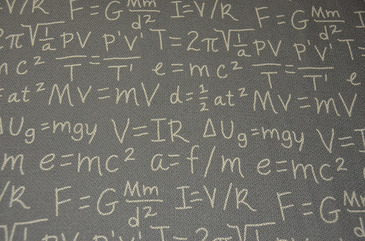

6th Grade Regular Math: Course Scope & Sequence.
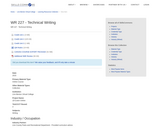
This course introduces students to the types of writing they will encounter in business, industry, the academic world and government. It examines the rhetorical nature of writing and asks students to think critically about content, audience, argument and structure. Students will learn how to effectively design documents, present instructions, create proposals and produce technical reports.
Course Outcomes:
1. Analyze the rhetorical needs (the needs of the audience in relationship to the assignment) for college-level evidence-based technical writing assignments.
2. Apply appropriate levels of critical thinking strategies (knowledge, comprehension, application, analysis, synthesis, evaluation) in their written assignments, with an emphasis on technical, evidence-based analysis, reporting, application, and evaluation.
3. Implement appropriate rhetorical elements and organization (executive summary, introduction, thesis, development and research-based support, visual evidence, conclusion, etc.) in their written assignments, with an emphasis on technical evidence-based analysis, reporting, and evaluation assignments.
4. Locate, evaluate, and integrate high-quality information and opinion appropriate for technical evidence-based assignments.
5. Craft sentences and paragraphs that communicate their ideas clearly and effectively using words, sentence patterns, and writing conventions at a high college level to make their writing clear, credible, and precise.
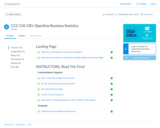
This sample shell is produced by the California Community Colleges CVC-OEI to support faculty in the use of Open Educational Resources and development of courses aligned to the OEI Course Design Rubric. The shell may be used for online, hybrid, &/or face-to-face classes. The shell is available for all faculty, not just those faculty in the CCC system. The team producing this shell includes Helen Graves, Liezl Madrona, Cyrus Helf, Nicole Woolley & Barbara Illowsky. If you are having challenges importing the shell, here are some steps to take. (1) Create an empty shell in your sandbox. (2) Import the Canvas Commons course into your shell. (3) Adapt the content as you wish. (4) If all else fails, contact your college IT person or Canvas administrator.
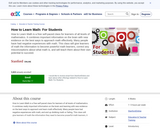
How to Learn Math is a free self-paced class for learners of all levels of mathematics. It combines really important information on the brain and learning with new evidence on the best ways to approach and learn math effectively. Many people have had negative experiences with math, and end up disliking math or failing. This class will give learners of math the information they need to become powerful math learners, it will correct any misconceptions they have about what math is, and it will teach them about their own potential to succeed and the strategies needed to approach math effectively.
Permitted use: the texts, exams, video, images, and other instructional materials provided with the courses and programs offered on the edX Site are for your personal use in connection with those courses and programs only.
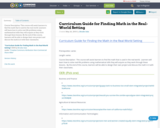
Course Description: This course will assist learners to find the math that is used in the real-world. Learners will learn how to solve real-life problems using mathematical stills they will acquire as they work through these lessons. By the end of this course, learners will be able to design their own project and discuss the math in it with their classmates.
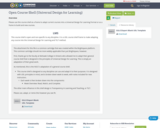
Please use this course shell as a frame to adapt current courses into a Universal Design for Learning Format or as a frame to build and new courses.
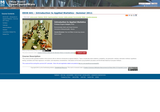
This course provides graduate students in the sciences with an intensive introduction to applied statistics. Topics include descriptive statistics, probability, non-parametric methods, estimation methods, hypothesis testing, correlation and linear regression, simulation, and robustness considerations. Calculations will be done using handheld calculators and the Minitab Statistical Computer Software.
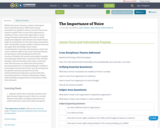
Within this series of lessons, students will explore these essential questions:
What basic human necessities are needed to thrive in society?
How do we measure wealth?
How to move from oppression to resiliency?
How to move from oppression to social change?
Students will examine the extent to which people pass judgment, discriminate and violate human rights in communities of color and to what extent these same communities remain resilient. Students will learn and apply their knowledge of non-violent communication to increase self awareness, school and career readiness skills in the social-emotional domain, and develop an understanding about their bio-reactions. Students will research and analyze strengths and challenges within their community. They will then identify a need and develop action steps to meet that need. We will move our instruction from broad to personal perspectives of understanding the conditions in the larger world as well as their own. By moving from the global/community perspective into the relational/historical experience and end with their personal perspective, students will develop a deeper understanding and appreciation of themselves within time and space.
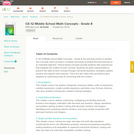
In CK-12 Middle School Math Concepts – Grade 8, the learning content is divided into concepts. Each concept is complete and whole providing focused learning on an indicated objective. Theme-based concepts provide students with experiences that integrate the content of each concept. Students are given opportunities to practice the skills of each concept through real-world situations, examples, guided practice and explore more practice. There are also video links provided to give students an audio/visual way of connecting with the content.

Welcome to this Quantitative Reasoning resource in Spanish. This resource can be used as an alternative to a traditional mathematics textbook for a one-semester course. It consists of free resources available to all users such as YouTube, Khan Academy in Spanish and much more. This resource is intended for Spanish-speaking students, but it does contain some resources in English which can be translated by the student as needed, or for videos in English, instructions are provided so students can view subtitles in English.
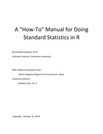
This “How To….” Manual is intended to assist the new user in implementing standard statistical methods, both parametric and non-parametric, using R statistical software. Its focus is on R implementation, not statistical theory. It includes the R commands, with examples, for the following: proportion tests, t-tests, ANOVA, variance tests, several correlation measures and regression models, Mann-Whitney-Wilcoxon tests, Kruskal-Wallis tests, chi-squared tests, multiple pairwise comparisons and effect sizes. Basic graphical methods are also illustrated.
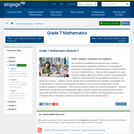
In order to assist educators with the implementation of the Common Core, the New York State Education Department provides curricular modules in P-12 English Language Arts and Mathematics that schools and districts can adopt or adapt for local purposes. The full year of Grade 7 Mathematics curriculum is available from the module links.
Find the rest of the EngageNY ELA resources at https://archive.org/details/engageny-ela-archive .
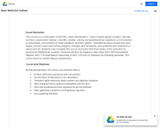
This course is a continuation of MAT087, Basic Mathematics. Topics include signed numbers, decimal numbers, exponential notation, scientific notation, solving and graphing linear equations, an introduction to polynomials, and systems of linear equations and their graphs. Geometrical topics include lines and angles, closed curves and convex polygons, triangles and similarities, and symmetry and proportion in nature and art. Students may complete this course during the first three weeks of the semester by passing the MyMathLab modules. Students will then be eligible to take either MAT 099 Intermediate Algebra, MAT 114-Quantitative Reasoning or MAT 120-Intro to Statistics the following semester. This course does not satisfy degree requirements.
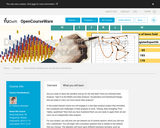
Are you ready to leave the sandbox and go for the real deal? Have you followed Data Analysis: Take It to the MAX() and Data Analysis: Visualization and Dashboard Design and are ready to carry out more robust data analysis?
In this project-based course you will engage in a real data analysis project that simulates the complexity and challenges of data analysts at work. Testing, data wrangling, Pivot Tables, sparklines? Now that you have mastered them you are ready to apply them all and carry out an independent data analysis.
For your project, you will pick one raw dataset out of several options, which you will turn into a dashboard. You will begin with a business question that is related to the dataset that you choose. The datasets will touch upon different business domains, such as revenue management, call-center management, investment, etc.
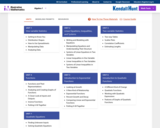
Per April
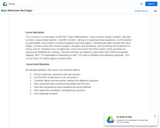
This course is a continuation of MAT087, Basic Mathematics. Topics include signed numbers, decimal numbers, exponential notation, scientific notation, solving and graphing linear equations, an introduction to polynomials, and systems of linear equations and their graphs. Geometrical topics include lines and angles, closed curves and convex polygons, triangles and similarities, and symmetry and proportion in nature and art. Students may complete this course during the first three weeks of the semester by passing the MyMathLab modules. Students will then be eligible to take either MAT 099 Intermediate Algebra, MAT 114-Quantitative Reasoning or MAT 120-Intro to Statistics the following semester. This course does not satisfy degree requirements.

Topics List for this Lesson: Percents, Sales Tax, and DiscountsIncome TaxSimple and Compound InterestAnnuities, Methods of Saving, and InvestingHome Ownership
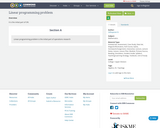
It is the initial part of OR.
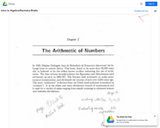
Introductory Algebra is the second of three classes in the developmental mathematics sequence. It provides a development of concepts of variables, expressions, and equations using symbolic algebra to represent primarily linear relationships both graphically and analytically. The concept of function will be developed for the application of linear equations and concepts of dependent and independent variable. Students will also learn to solve simultaneous linear equations as well as how to construct linear equations from slope and point information. Application problems will include geometric figure quantities, ratio and proportion, direct and indirect variation, and conversion of units. Finding the greatest common factor of a polynomial will also be included. The emphasis of the three semester sequence is fortification of mental calculation power with minimum reliance on digital calculation.
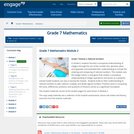
In order to assist educators with the implementation of the Common Core, the New York State Education Department provides curricular modules in P-12 English Language Arts and Mathematics that schools and districts can adopt or adapt for local purposes. The full year of Grade 7 Mathematics curriculum is available from the module links.
Find the rest of the EngageNY ELA resources at https://archive.org/details/engageny-ela-archive .